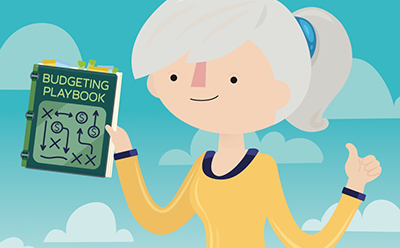5 Strategies to Learn New Skills Fast
Learning a new skill has many potential benefits. It can entertain you, it can save you money, it can boost your self-confidence, and it can unlock new opportunities at school and at work. However, choosing a new skill to learn is only half of the battle — you’ll also need to decide how to go about developing that particular skill.
To ensure that you’re getting the best possible results for your time and effort, incorporate some tried-and-true learning strategies into your training program. Whether you’re mastering a new software program, upping your chef game or learning to play a new instrument, keep these strategies in mind to set yourself up for success.
Focus on one skill at a time
When inspiration strikes, you might feel the desire to take on a bunch of new challenges all at once (“I want to learn to roller-skate! AND play the ukulele! AND learn astronomy! AND…”). When it comes to mastering a skill, however, you’re better off choosing one item from your wish list to focus on at a time. Identifying your priority ahead of time solidifies your commitment, helps prevent future distractions and ensures that you follow through with your goal.
Breaking your goal down into smaller tasks — and assigning timelines to those tasks — can also help you stay on target (for example, “learn the ukulele” might become “memorize four chords by next week”). By concentrating your efforts on one new skill at a time, you will progress more quickly — which means that you can tackle your next new skill even sooner.
(Article continues below the video)
Use more than one method
Studies suggest that experiencing learning material in many different ways is an effective learning strategy. What does this mean for mastering your new skill? Experiment outside of your preferred learning style (visual, auditory, kinesthetic, etc.) and use a combination of learning methods to quickly solidify the new concepts you’re learning.
Try to incorporate at least three different mediums in your training program. For example, you might read a book on the subject, attend a class where you can ask questions, and follow along with a YouTube tutorial to put your skills into action.
Find a mentor
Even if you’re an extremely disciplined person, it can be challenging to learn something new on your own. Enlisting the help of a mentor can kickstart your learning journey. Mentors can provide insightful feedback and point you toward helpful resources.
Think about whether you have any family, friends or coworkers who are good at the skill that you’re eager to learn. Tell people about your goal — odds are that you know someone who is happy to support you (or, if they’re unable to, they can connect you to someone who will). Getting others involved in your learning process creates a support and accountability system to keep you motivated.
Practice the right way
Practice makes perfect, but not all practice is perfect. As you start to develop a new skill, it’s tempting to only practice the parts that come easiest to you. Using the ukulele goal as an example, it’s much more satisfying to play the piece you already know over and over again than it is to fight through a new piece with tricky chords.
If you notice that your practice sessions tend to gravitate toward elements you’ve already mastered, make a conscious effort to practice the hard parts instead. Deliberate practice means working on your weaknesses. Even though it feels slightly uncomfortable, it’s the most effective form of practice. Deliberate practice can be intense, so be sure to space out your sessions and take breaks to avoid mental fatigue.
Chart your progress
Don’t compare your beginning to someone else’s middle. When you’re a total beginner, it’s easy to get discouraged when you don’t see the results you expect right away. Be patient and know that the time and effort you’re investing into learning a new skill is paying off — even if you can’t see it just yet. Accept that everyone learns at a different pace, and let go of the need to compare yourself to others. Instead, focus on your personal momentum.
Find simple ways to document your progress: mark a calendar with completed practice days, take regular progress photos or keep a journal to document how far you’ve come. Celebrating your progress is a healthy way to build self-confidence and to stay motivated when trying something completely new.
Focus, mentorship and deliberate practice are examples of effective learning strategies that can help you advance more quickly when developing a new skill. By using learning strategies to lock in what you learn, you’ll have faster access to the benefits of expanding your skill set.




